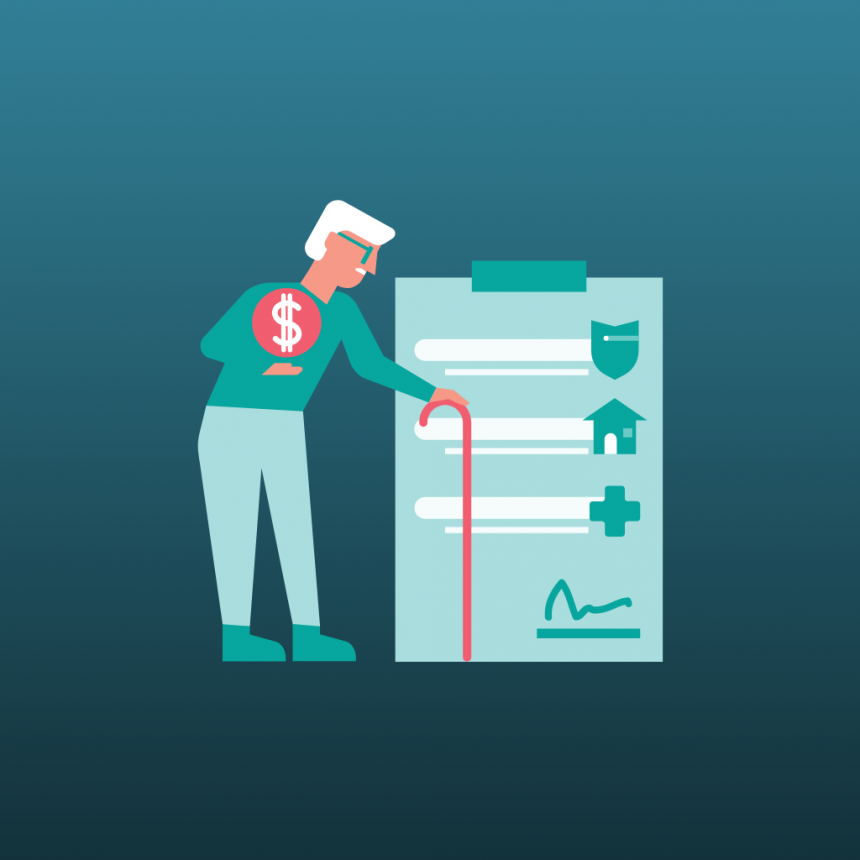
Financial Planning for Young Professionals: Starting Out on the Right Foot
If you are a young professional, it is imperative that you start planning for your financial future as soon as possible in your career. The longer you wait, the more difficult it will be. You will have a much easier time defining and accomplishing your monetary goals if you take the time to plan your finances in advance. This will also help to ensure that you are moving in the right direction toward a financially secure future. The following is a list of significant steps that young professionals can take to kickstart their long-term financial plans:
When you initially begin to organize your financial affairs, the first thing you should do is work out a budget and stick to it. Making a budget will help you obtain a better knowledge of your income and costs, as well as the areas in which you may be able to make cutbacks in your spending. It will also help you organize your spending according to your priorities and make sure you set aside enough money to reach your long-term goals.
Create a savings account that will be used only for the purpose of meeting unexpected costs, such as those that may be incurred in the case of a medical emergency, a breakdown in the maintenance of an automobile, or the loss of a job. Both a sense of financial stability and mental tranquility might result from the realization that one possesses a safety net that can be drawn upon in the event of an unexpected crisis. Because having an emergency fund can provide a sense of financial security as well as peace of mind, it is important to have one. The amount of money that should be stowed away in an emergency fund should be anything from three months' worth of basic living costs to six months' worth of essential living costs.
Pay off debt: If you have outstanding debt, such as credit card debt or school loans, it is vital to begin paying it off as soon as possible. This includes beginning the process of paying off your debt as soon as possible. It is imperative that any debt, whether it be from credit cards, school loans, or other sources, be paid off as quickly as possible. Since high-interest debt can quickly snowball into a mountain of debt that is difficult to manage, it is critical to eliminate this type of debt before beginning to save money for other objectives.
Start saving for retirement. There is no such thing as waiting until it is too late to start putting money aside for your retirement. If you get a head start on saving, your money will have more time to build up interest and dividends on the investment. You should give some thought to approaching your employer about the possibility of enrolling in a 401(k) or any other sort of retirement plan and contributing the greatest amount that you are able to afford. If the company where you work has a program that matches employee contributions, you must make sure that the amount you contribute is sufficient to qualify for the benefit that your employer is offering.
Become a shrewd investor: after you begin to amass wealth, it is imperative that you start to think about how to invest your money at the appropriate time. Investing can be a very profitable endeavor if it is done correctly. Your exposure to risk can be reduced, while at the same time, your potential for making a profit from your holdings can be increased, if you have a more diverse portfolio of financial assets. Consider expanding your investment horizons by buying a mix of stocks, bonds, and real estate in order to diversify your portfolio. Talking to a financial advisor is also crucial if you want to make sure that your investments are in line with both the level of risk you are willing to take and the goals you want to achieve from your portfolio.
You must buy insurance to protect yourself because you need enough insurance coverage to protect both yourself and your property.
You should give some consideration to acquiring health, life, and disability insurance in order to safeguard your financial well-being in the event that you are struck by an unforeseen illness or experience an accident. If you want to be sure that your belongings are protected, it is vital to think about purchasing homeowner's or renter's insurance.
Continually educate yourself. Because financial planning is an ongoing process, it is essential to remain informed and to continually educate yourself on new financial products and methods. You should do this as often as possible. Continually educate yourself on the most recent advancements in financial services and products. You should stay up-to-date on the most recent financial news and articles, in addition to participating in webinars and seminars and having conversations with financial specialists or advisors.
In view of the fact that life is unpredictable and that circumstances may change, it is vital to periodically examine and adjust your plan in order to account for these factors. As a consequence of this, it is imperative that you review your financial strategy and make appropriate adjustments as necessary. Always make sure that your long-term goals as well as your current status are taken into consideration when formulating your financial plan. This should include your budget, your expenses, and your savings. Conduct a review of the coverage that is offered by your insurance policy to determine whether or not it still meets your needs. Conduct an analysis of your holdings to determine whether or not they still fit within the parameters of your acceptable degree of risk and the goals that you have established for yourself. Always keep a close eye on how far along you are in your financial goals and, if necessary, make adjustments to ensure that you are moving in the right direction.
Another crucial component of effective financial planning for young professionals who are just starting out in their careers is the setting of specific and attainable financial goals. These goals ought to be SMART goals, which stand for specific, measurable, attainable, relevant, and time-bound. SMART is an acronym for "specific, measurable, attainable, relevant, and time-bound." The acronym SMART stands for Specific, Measurable, Attainable, Relevant, and Time-Bound. Your ability to concentrate on the task at hand and keep yourself motivated will improve as a result of this, and it will be much simpler for you to realize your monetary goals. During the course of their careers, young professionals may decide to work toward achieving various financial goals, such as investing money for a down payment on a house, paying off student loans, saving money for their children's education, and making plans for retirement.
It is absolutely necessary to take the impact that taxes will have on your financial plans into consideration whenever you are making long-term financial preparations. If you have a greater understanding of the tax repercussions related to the many choices you can make regarding your finances, you will be able to make more educated judgments, and you may even wind up saving money as a result of those decisions. If you make contributions to a 401(k) or a standard IRA, for example, you can be eligible for tax breaks. On the other hand, if you take money out of either of those accounts before the allotted time, you might be subject to penalties. It is possible to make the most efficient use of the resources you have available to you financially if you are familiar with the tax code and work closely with a tax professional.
One more vital aspect that must be taken into consideration is the impact that inflation will have on the financial plan that you have created. The rate at which the general level of prices for goods and services is rising and, as a direct consequence, the level of customers' purchasing power is also referred to as the "inflation rate." As a consequence of this, the value of your money may drop over the course of time, which will make it more difficult for you to achieve your monetary goals. In order to shield oneself from the repercussions of inflation, it is recommended that one make investments either in assets that have the potential to increase in value, such as stocks or real estate, or in assets that pay a greater rate of return, such as bonds. Both of these types of investments can be made.
To summarize, young professionals need to engage in financial planning if they want to reach a point of monetary stability and security in order to be successful in their careers. Establishing a budget, accumulating an emergency fund, paying off debt, starting to save for retirement, investing wisely, protecting themselves with insurance, continuing to educate themselves, regularly reviewing and adjusting their plans, setting specific financial goals that are within their reach, and being aware of the impact that taxes and inflation will have on their plans are all steps that can help young professionals take control of their finances and position themselves for a financially secure future. When you are trying to get your finances in order, it can be very helpful to talk to a financial counselor about your situation. This person can give you good advice and help.





